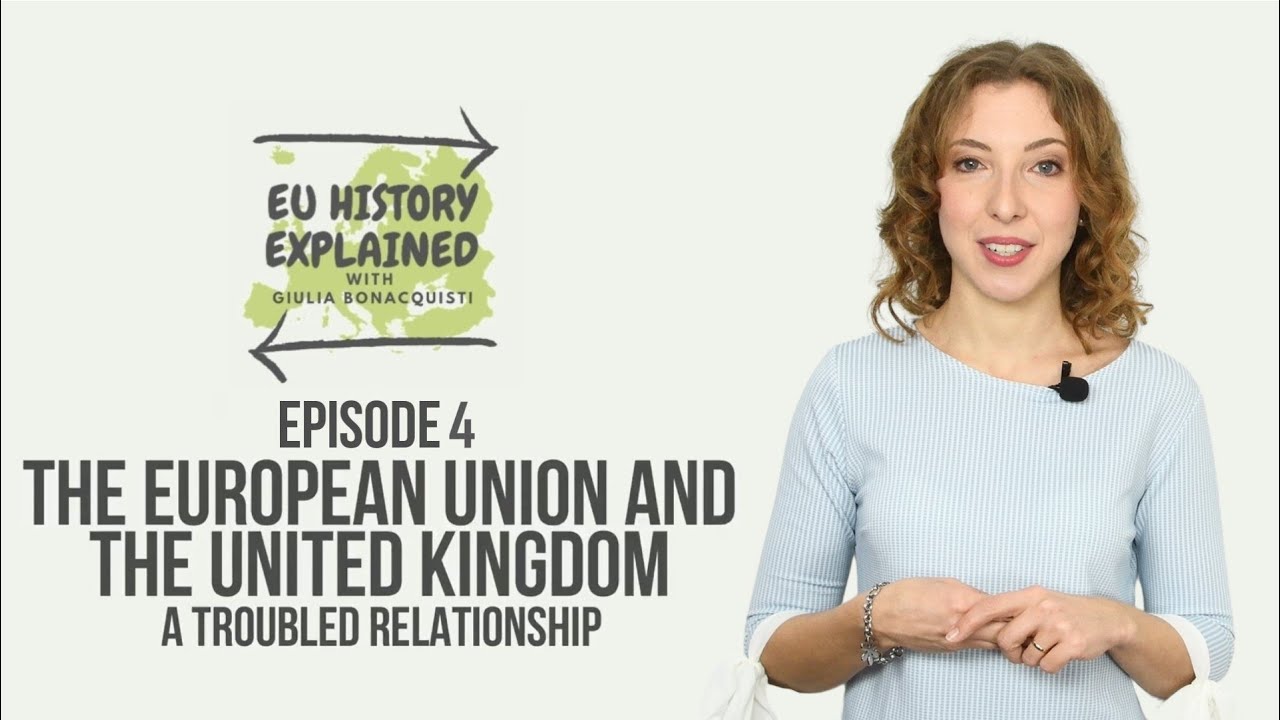Geographie: Aufgaben und Organe der EU einfach und kurz erklärt
Summary
TLDRThis video explains the European Union (EU), its core functions, and the key organs responsible for its operations. The EU aims to create a unified economic space with free movement of goods, services, and people. It encompasses a shared monetary and foreign policy, as well as cooperation in justice and policing. Key EU institutions such as the European Commission, European Parliament, and European Court of Justice work together to propose laws, approve budgets, and ensure legal consistency across member states. Additionally, the Schengen Area promotes border-free travel among participating countries, enhancing regional collaboration.
Takeaways
- 😀 The European Union (EU) was formalized through the Maastricht Treaty in 1993, outlining its roles and responsibilities.
- 😀 The EU consists of 27 member states, forming a large economic area known as the internal market, where goods can move freely without tariffs.
- 😀 The EU promotes free movement of people, meaning no border controls between member states.
- 😀 Service providers in the EU can offer their services across all member states without restrictions.
- 😀 Citizens are free to choose where to live or invest their assets within the EU.
- 😀 The Schengen Area allows unrestricted movement between countries, with no internal border checks.
- 😀 The EU has joint rules for handling refugees and police cooperation between member states.
- 😀 The European Commission drafts laws and ensures they are followed, with each member country contributing a commissioner.
- 😀 The European Council, made up of the governments of EU member states, works with the European Parliament to pass laws.
- 😀 The European Parliament is elected every five years by EU citizens and works alongside the Council to pass laws, approve budgets, and agree on policies.
- 😀 The European Court of Justice ensures uniform application of EU law across all member states.
- 😀 The European Central Bank manages the euro currency and ensures price stability within the Eurozone.
- 😀 The European Court of Auditors monitors the financial management of the EU.
- 😀 The Economic and Social Committee and the Committee of the Regions have advisory roles in EU decision-making.
Q & A
What were the primary goals of the European Union set by the Maastricht Treaty in 1993?
-The Maastricht Treaty established the European Union's primary goals, including the creation of an economic and monetary union, a common foreign and security policy, and cooperation in justice and police matters.
What is the EU's single market, and what does it allow?
-The EU's single market, also known as the internal market, allows for the free movement of goods, services, people, and capital between member states. This means goods can be traded without tariffs, people can travel freely without border controls, and services can be offered across all EU countries.
What is the Schengen Area, and which countries are part of it?
-The Schengen Area is a zone where there are no internal border controls for movement between participating countries. It includes EU member states and several non-EU countries like Switzerland, Norway, Iceland, and Liechtenstein, but excludes the UK.
What is the role of the European Commission?
-The European Commission is responsible for drafting European laws and ensuring their implementation. It monitors compliance with EU law and is led by the Commission President. Each member state appoints a commissioner to handle specific policy areas.
How does the European Union's Council of Ministers operate?
-The Council of Ministers, also known as the European Council, is composed of government ministers from each EU member state. It shares the responsibility for passing European laws with the European Parliament and works on approving the EU's budget.
What is the role of the European Parliament, and how are its members elected?
-The European Parliament works alongside the Council of Ministers to pass laws, approve the EU's budget, and review the Commission's activities. Members of the European Parliament are elected every five years by the citizens of the EU.
How does the European Court of Justice contribute to the EU?
-The European Court of Justice ensures that EU laws are applied consistently across all member states. It interprets and enforces EU law, making sure it is uniformly implemented throughout the Union.
What is the function of the European Central Bank?
-The European Central Bank manages the euro currency and works to maintain price stability across the eurozone, which includes ensuring low inflation and supporting economic growth within the region.
What role does the European Court of Auditors play in the EU?
-The European Court of Auditors oversees the EU's financial activities, ensuring that EU funds are used correctly and efficiently. It audits the EU’s finances and reports on the soundness of its budget management.
What are the advisory bodies within the EU, and what do they do?
-The Economic and Social Committee and the Committee of the Regions are advisory bodies within the EU. They provide recommendations and opinions on various policy matters but do not have legislative powers.
Outlines

This section is available to paid users only. Please upgrade to access this part.
Upgrade NowMindmap

This section is available to paid users only. Please upgrade to access this part.
Upgrade NowKeywords

This section is available to paid users only. Please upgrade to access this part.
Upgrade NowHighlights

This section is available to paid users only. Please upgrade to access this part.
Upgrade NowTranscripts

This section is available to paid users only. Please upgrade to access this part.
Upgrade NowBrowse More Related Video

Istituzioni e organi dell'UNIONE EUROPEA - lezione aperta (26/12/2021)

C’EST QUOI L’UNION EUROPÉENNE ?

União Europeia - Brasil Escola

La Carta dei diritti fondamentali dell'UE

The European Union & the United Kingdom: A Troubled Relationship | EU History Explained Episode 4

How does the EU work (and why is it so complex)? | DW News
5.0 / 5 (0 votes)